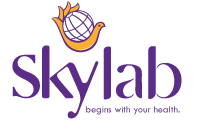No products in the cart.: ₹0.00
During your visit to a doctor, they may have advised overnight fasting prior to a blood test, which simply means that you should abstain from consuming any food or beverages, except for water, for several hours before the test.
If you are fasting before blood tests, it’s also important to refrain from activities such as chewing gum, smoking, and engaging in heavy exercise.
If you are wondering why to fast before a blood test, here’s the explanation in short – when you consume food and beverages, your bloodstream assimilates sugars, fats, proteins, and other nutrients from them. These nutrients have the potential to affect the outcomes of specific blood tests and potentially result in inaccurate medical conclusions. Let us take a detailed look at the concept of fasting before blood tests.
Is Fasting Necessary for Blood Work?
Fasting, within the context of blood tests, involves refraining from consuming food and drinks for a pre-decided time period. This practice ensures accurate test results by preventing the absorption of nutrients that could potentially affect diagnostic outcomes.
Fasting before blood tests is necessary for an accurate result for some tests, while for others, it’s a part of safety precautions. Consult your doctor regarding the appropriate measures before the blood test, including fasting guidelines, to prevent erroneous results and re-testing.
Reasons for Fasting
As we know, eating, drinking and even taking certain medicines can introduce sugars, fats, proteins, and other nutrients into your bloodstream, which could affect the outcomes of specific blood tests, leading to the incorrect diagnosis of a medical condition.
Fasting before a blood test helps to achieve accurate baseline measurements of blood components. For instance, fasting blood glucose tests can reveal type 2 diabetes. Fasting before a blood test is also crucial for accurate triglyceride measurements. If the individual is not fasting for these two tests, the test results may not portray an accurate picture of the blood glucose concentration or triglyceride measurements, leading to a misdiagnosis and potentially incorrect medication dosage during treatment. Therefore, most guidelines still recommend fasting for these tests and some others as well.
Blood Tests That Require Fasting
For certain blood tests, regular eating and drinking are allowed. However, a “fasting blood test” requires refraining from eating or drinking before the test. Some of the tests that require fasting before blood tests include:
Blood sugar (glucose) test – assesses blood glucose levels and aids in diagnosing and monitoring diabetes, prediabetes, and gestational diabetes. Not all of these tests require fasting; talk to your provider for clarity on which ones need fasting.
A basic metabolic panel (BMP) – measures certain substances in the blood that affect organ function, including the heart, kidney, and liver.
Lipid profile tests – evaluate lipid levels like cholesterol and triglycerides, indicate heart disease risk.
Liver function tests – examine the well-being of the liver through the analysis of proteins, liver enzymes, and bilirubin.
Renal function panel – assesses kidney performance.
Exceptions and Guidelines
If you are wondering, “Can I drink water before a fasting blood test,” then you should know you can. Water consumption is, in fact, beneficial before blood tests as better hydration enables an easy blood draw. However, you should avoid beverages like coffee, juice, and soda as they can get into your bloodstream and affect your results.
Certain medicines affect blood test results. Therefore, it’s wise to disclose all medications and supplements you take to your doctor to get accurate advice on which medicines to stop to prevent potential interference with the test outcomes.
Alcohol and Fasting
Another question you may have is, “Why is alcohol restricted before a blood test?” Alcohol affects the way certain substances are metabolized in the body. For example, alcohol taken with meals has a deleterious effect on lipid metabolism and may cause hypertriglyceridemia (increased triglyceride levels), more so if the meal contains fats. Some studies have stated that triglyceride concentration could reach its peak in 5 hours after consumption of food and alcohol.
Also, consuming alcohol can keep the liver busy in processing alcohol and the liver cannot release the glucose necessary for the body. This can cause low blood sugar, which is reflected in the blood test results.
Therefore, drinking alcohol before a fasting blood sugar test or lipid panel (which measures triglycerides) can hinder test results.
Preparing for Fasting Blood Tests
Typically, 8 to 12 hours of fasting before blood tests is necessary, but it can vary. To optimize fasting, schedule morning tests, as most of the fasting hours will then coincide with sleep. Typically, fasting blood tests are done after a minimum of 8 hours and a maximum of 16 hours of fasting.
Fasting blood sugar test results are normally in the range of 80- 130 mg/dL. For accurate test results, one should eat normally over the few days leading up to the test.
Common Misconceptions
For optimal blood test accuracy, avoid drinking anything except water. Coffee and tea contain caffeine and act as a diuretic, which can skew the results by increasing urination. It’s advisable to not have your morning coffee if you are fasting before a blood test.
While some tests mandate fasting/empty stomach for blood tests, water consumption is typically allowed and beneficial. Hydrating with water helps with vein visibility, ensuring a smoother and pain-free blood draw.
Smoking should also be avoided before the blood test. Although clinical studies on e-cigarettes and diabetes are limited, higher nicotine levels are linked to slightly elevated HbA1c levels in individuals who do not have diabetes.
Chewing gum and mints are said to boost the amount of fluids in the stomach, which can in turn affect results. However, this requires further research.
The Importance of Following Instructions
A precise blood test outcome enables accurate diagnosis and helps the doctor to formulate effective treatment strategies. Therefore, it is necessary for individuals to openly discuss their medications and past medical history with their healthcare providers for safer and more tailored healthcare.
In conclusion, fasting before blood tests is crucial to avoid retaking tests due to erroneous results and ensures accurate results by preventing diet-related fluctuations in blood test results. Understanding and adhering to fasting guidelines is vital for informed and accurate healthcare decisions. You can choose the convenience of Skylab clinical Laboratory Trivandrum home sample collection when scheduling your tests for seamless, hassle-free healthcare management.
Book blood test with Skylab clinical Laboratory near you –| Blood Test in Trivandrum | Blood Test in Trivandrum statue | Blood Test in Anayara | Blood Test in Kazhakootam | Blood Test in Pettah | Blood Test in Kovalam | Blood Test in Vellayambalam | Blood Test in Ulloor | Blood test in Pattom Trivandrum | Blood test in Kuravankonam |Best Laboratory in Trivandrum | Best customer service|
| Skylab Clinical Laboratory | Best Clinical Lab | Laboratory in Attukal | Laboratory in Sasthamangalam | Laboratory in Karamana | Laboratory in Chala | Laboratory in Attakulangara | Laboratory in East Fort | Laboratory in West Fort | Laboratory in Kaithamukku | Laboratory in Pallimukku | Laboratory in Pettah | Laboratory in Vachiyoor | Laboratory in Plamoodu | Laboratory in Vazhuthacad | Laboratory in Ambalamukku | Laboratory in Perurkada | Customer Friendly | Affordable Price | Convenience | Online appointment | Home Collection Available |


